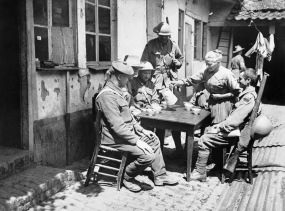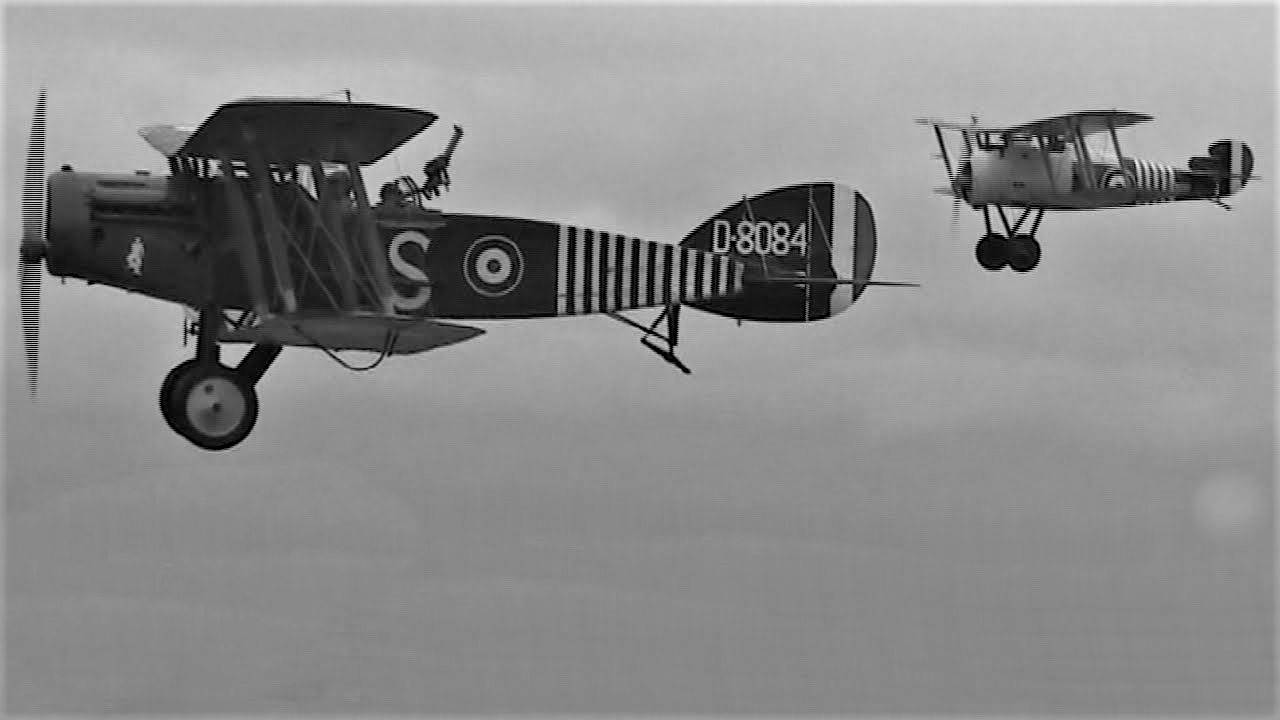A Pilot's Tale
After the attack at Arleux, your battalion has a few quieter months in the Artois/Arras sector. While you are stationed in a reserve billet you have time to visit the local estaminet. As you sit and enjoy your "oeufs et frites" and sip a glass of "plonk", you watch an aircraft fly by.

"That's the life", you mutter, "You fly high above the mud and bloodshed, sleep in a nice billet at night. No trench raids, no artillery bombardments, no moaning minnies or coal bins to kill you."
"You're right about that" says a lieutenant sitting near you, "but flying can be as dangerous and as terrifying as being on the ground". You turn to the speaker and realize he wears the insignia of the Royal Flying Corps.
He explains that he flies as the observer/air photographer/gunner in a two seater. Everyone watches the fighter aircraft and their "dogfighting" but air reconnaissance is far more important than fighter activity. It is so important that each side tries to protect its own "eyes in the sky" while destroying the enemy's reconnaissance abilities. The reconaissance aircraft fly slowly and are not very maneuverable so they make easy targets for the enemy. The only thing that save them are the escorts of smaller, higher performance fighters.

He says imagine waking up every day knowing that you are going to fly across enemy lines like a sitting duck. Your aircraft is flimsy, the engine is unreliable, and the upper air is always freezing. You have enemy fighters and enemy anti-arcraft guns waiting to kill you. On every flight you see a mate or two die - machine gunned, burned, or crashing into the ground. And tomorrow you do it all again. We call ourselves the "20 Hour Club" - because that's how long the average pilot survives - 20 hours of flight time.
His words make you rethink what you said about flying. You have another glass of wine, buy one for the lieutenant, and think about life on the ground.